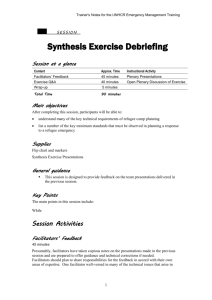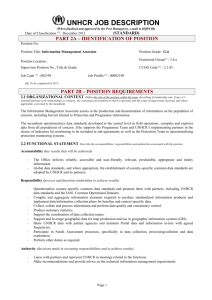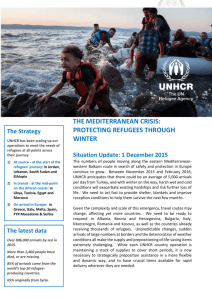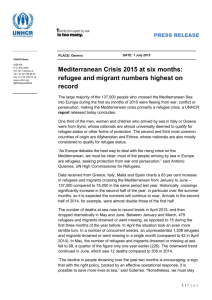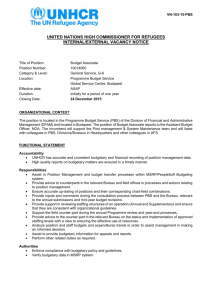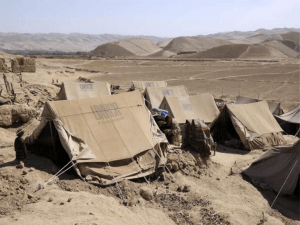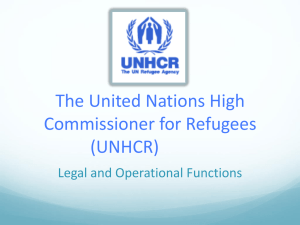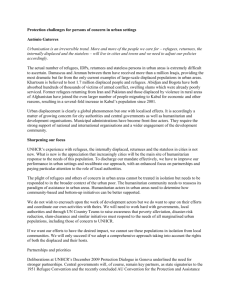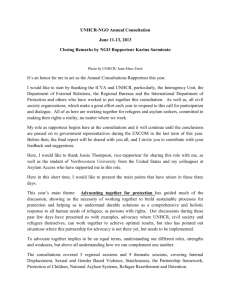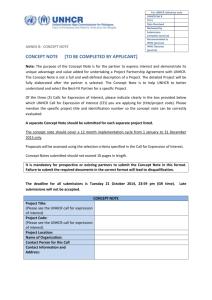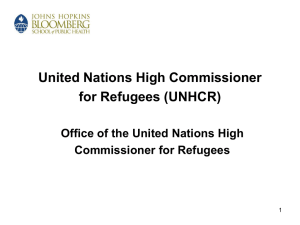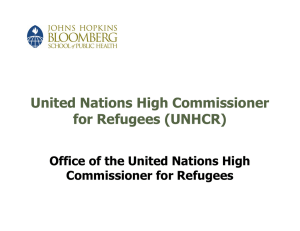ToR - Child Protection Working Group
advertisement
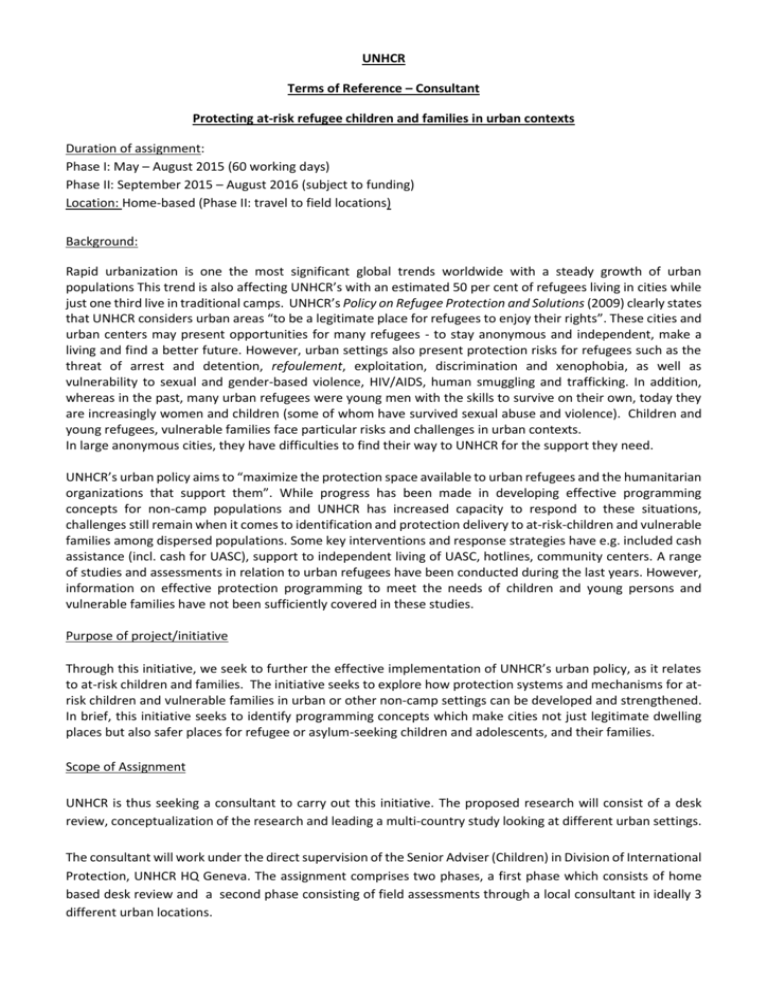
UNHCR Terms of Reference – Consultant Protecting at-risk refugee children and families in urban contexts Duration of assignment: Phase I: May – August 2015 (60 working days) Phase II: September 2015 – August 2016 (subject to funding) Location: Home-based (Phase II: travel to field locations) Background: Rapid urbanization is one the most significant global trends worldwide with a steady growth of urban populations This trend is also affecting UNHCR’s with an estimated 50 per cent of refugees living in cities while just one third live in traditional camps. UNHCR’s Policy on Refugee Protection and Solutions (2009) clearly states that UNHCR considers urban areas “to be a legitimate place for refugees to enjoy their rights”. These cities and urban centers may present opportunities for many refugees - to stay anonymous and independent, make a living and find a better future. However, urban settings also present protection risks for refugees such as the threat of arrest and detention, refoulement, exploitation, discrimination and xenophobia, as well as vulnerability to sexual and gender-based violence, HIV/AIDS, human smuggling and trafficking. In addition, whereas in the past, many urban refugees were young men with the skills to survive on their own, today they are increasingly women and children (some of whom have survived sexual abuse and violence). Children and young refugees, vulnerable families face particular risks and challenges in urban contexts. In large anonymous cities, they have difficulties to find their way to UNHCR for the support they need. UNHCR’s urban policy aims to “maximize the protection space available to urban refugees and the humanitarian organizations that support them”. While progress has been made in developing effective programming concepts for non-camp populations and UNHCR has increased capacity to respond to these situations, challenges still remain when it comes to identification and protection delivery to at-risk-children and vulnerable families among dispersed populations. Some key interventions and response strategies have e.g. included cash assistance (incl. cash for UASC), support to independent living of UASC, hotlines, community centers. A range of studies and assessments in relation to urban refugees have been conducted during the last years. However, information on effective protection programming to meet the needs of children and young persons and vulnerable families have not been sufficiently covered in these studies. Purpose of project/initiative Through this initiative, we seek to further the effective implementation of UNHCR’s urban policy, as it relates to at-risk children and families. The initiative seeks to explore how protection systems and mechanisms for atrisk children and vulnerable families in urban or other non-camp settings can be developed and strengthened. In brief, this initiative seeks to identify programming concepts which make cities not just legitimate dwelling places but also safer places for refugee or asylum-seeking children and adolescents, and their families. Scope of Assignment UNHCR is thus seeking a consultant to carry out this initiative. The proposed research will consist of a desk review, conceptualization of the research and leading a multi-country study looking at different urban settings. The consultant will work under the direct supervision of the Senior Adviser (Children) in Division of International Protection, UNHCR HQ Geneva. The assignment comprises two phases, a first phase which consists of home based desk review and a second phase consisting of field assessments through a local consultant in ideally 3 different urban locations. The consultant is expected to undertake the following tasks: Provide overall coordination for this initiative, including field research components; Conduct a desk review, to take map existing practice and programming approaches in urban contexts which aim to provide protection services to at-risk children and adolescents, and vulnerable households; Develop the methodology for the field work in the urban locations selected; Liaise with UNHCR country offices selected to be part of this initiative regarding the field component of this initiative, including recruitment of local consultant; Work closely and coordinate with other related urban/non-camp initiatives in UNHCR (see concept note); Develop briefing/training tools for the field researchers; Develop appropriate tools for assessment (to be conducted by local consultant/partner); Provide remote (and some on-site) support to local consultants/partner for field mapping and research; Prepare a final report which documents promising practice regarding outreach and community engagement (refugee and host community) and outlines key elements for effective strategies to strengthen protection systems for vulnerable urban refugees ; Organize a round table (2016) Expected deliverables: Inception report; Concept note for phase II of this initiative (field assessment), including ToR for local consultants/partner Summary of findings from desk review Guidance material and tools for field research, arrange 2 training webinars Report on assessment conducted in each identified urban location; Final report on the outcome of this initiative and a roundtable in Geneva (or other location); Two webinars for UNHCR staff to share learning; Bi-weekly brief updates on how this initiative is progressing. Expressions of Interest: Send a cv, with a cover letter (max.2-3 pages) outlining your initial thoughts on this initiative, and how you would go about this assignment. Send your expression of interest to UNHCR HQ Child Protection Unit hqchipro@unhcr.org using the subject line: child protection in urban context by 2 April 2015.
